Graham Reid | | 15 min read
Joe Henderson: Lotus Blossom (from Lush Life, 1992)
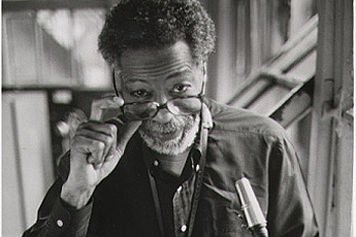
Joe Henderson is sitting at a press conference in Carnegie Hall,
New York, patiently answering another dumb leading question. Someone
among the contingent of journalists has just asked this legendary
tenor saxophonist -- who turned 57 this week -- why it has taken so
long for him to be recognised.
Henderson smiles wanly and with the humility that has been his
hallmark says maybe it was best he didn’t get acknowledged up until
recently - perhaps God thought, “If I give it to him early, his
head will swell up."
There is a ripple of laughter around the room, then Henderson,
realising the intensity of the Eastern European interviewer, adds,
“But seriously . . .” and embarks on a bland answer.
Another question comes his way: what does Joe think of the Verve
label? It’s about the third time the question has been asked and
this time the collective groan from other journos flown in from as
far afield as Japan, New Zealand and Europe shuts the question down
dead.
This is the 50th anniversary salute to the Verve record label, the
label to which Henderson signed two years ago, and the shy, bearded
saxophonist is just one of the star-studded panel which includes
Herbie Hancock, Betty Carter, young trumpeter Roy Hargrove, Antonio
Carlos Jobim and guitarist Kenny Burrell. Yet of all these,
Henderson, of worryingly fragile and birdlike frame, is attracting
the most attention.
That's what winning Grammy Awards does for your profile. Suddenly
- after a lifetime in jazz - Joe is an overnight sensation for
soundbite television and print journalists after a quick quote.
Henderson smiles warmly but, gentleman though he is, he deserves
better. He possesses, in the heading of a recent profile in the
influential jazz magazine Downbeat, “The Sound That Launched a
Thousand Horns”, has a career that dates back 30 years, has been
the consummate sideman on albums which featured jazz musicians as
influential as pianist McCoy Tyner, drummer Elvin Jones, trumpeters
Lee Morgan and Freddie Hubbard . . .
The list goes on and Henderson's CV is crammed with the stuff of
jazz legend. But more important for present purposes is his
commercial success.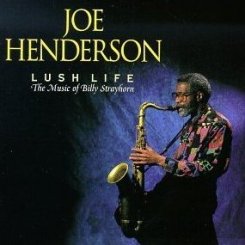
In an art form where commercial success without artistic
compromise is a rarity, Henderson has pulled it off. His Verve
biography ludicrously overstates the case when it claims he is “the
most celebrated jazz artist of the past 25 years”.
But there is no denying sales of 100,000 for his Verve debut Lush
Life; The Music of Billy Strayhorn in '92 (his first Grammy and
scooping multiple awards in Downbeat) or the even more successful
follow-up, So Near, So Far; Musing for Miles of last year which
pulled in Grammies for best jazz instrumental solo and best jazz
instrumental performance.
Henderson's name was again at the top of Downbeat and Billboard
readers and critics’ polls, and from New York‘s Village Voice and
Times through USA Today to the Grand Rapids Press and the Cleveland
Plain Dealer, his was the album that hit all the “best-of-the-year”
lists. Thirty years after topping the Downbeat poll as a “talent
deserving wider recognition," Joe Henderson was solidly placed
at the top of the Billboard' jazz sales charts. A star.
Jazz success, however, can be easily won -- Kenny G, for instance
-- but it usually doesn't sound like jazz. Kenny G, for instance.
But Henderson‘s albums are unmistakably jazz, crafted in the
classical framework and tradition.
He plays on both recent albums with small groups (Wynton Marsalis
appears on Lush Life, guitarist John Scofield on So Near, So Far) and
the consistency of his vision has been reinforced by the reissue of
some of his earlier albums in the wake of his current success.
The German label MPS recently reissued his 1980 album Mirrormirror
and there is the magnificent four-disc box set The Blue Note Years
which gathers together 36 tracks (mostly from the influential period
in the Sixties).
All are testament to Henderson's unswerving musical integrity, his
ability to play jazz without resorting to cliche or filibustering
solos and to his deep immersion in the various threads of jazz
throughout the decades. That sagging shelf of awards, trophies and
plaques is much deserved.
And he has often - like Miles Davis, with whom he once played very
briefly - worked with younger musicians.
“l like being with the ones who have done their homework,” he
says once free of the dumb leading questions. "They deserve to
be heard. They have to study the craft and take the music seriously.
It’s not just getting up and looking hip on the bandstand; the
music comes first and everything else comes after.
"There was a point where it seemed if you packaged it right
and put it in the marketplace in the right places, whether it was
ready or not, it seemed to be acceptable," he adds, referring to
the Eighties when record companies went on signing sprees looking for
the new Wynton Marsalis.
“Verve has at least moved away from that attitude and put some
integrity back into the music. I'm happy to be recognised the way I
have over the past year and a half, but I don’t do this for the
recognition. I do it because it’s what I'm supposed to do on this
planet, I enjoy what I do and I try to project that so the audience
gets a lot of happiness.
"But we have to look at the whole picture. Miles [Davis]
influenced this whole movement, just as Lester Young and others
before did. And all those who never got recognised. I don’t
appreciate them any the less for that [lack of recognition]."
What this late career success has meant, however, is that writers
and critics, most of whom should know better, are writing Henderson
up as the last survivor of his particular generation of jazz artists.
Henderson is far too modest and knowledgeable to suggest that.
He sees himself as part of a tradition and his two Verve albums,
the first a homage to the songwriter who for 30 years worked with
Duke Ellington, the most recent a respectful nod to Miles Davis, were
both projects he refers to as replanting the trees.
But this sudden flurry of attention for the albums, his invitation
to play at the Clinton Inaugural Ball, a South Bank Show profile,
numerous print interviews and sell-out live performances have cast
Joe Henderson of Lima, Ohio, as some Anthony Hopkins of jazz -- the
one who has always been there in workmanlike and creditable roles but
has only lately been accorded his due for carefully crafted albums on
his new label.
Hence the question: "What do you think of Verve, Joe?"
As the press conference winds down, Henderson takes his leave,
grabs a salad off the amply stocked side-table and settles into a
chair while television crews pursue Herbie Hancock for a soundbite.
He seems delighted to be able to talk about music and, as his manager
observes later, “You don’t get a five-minute interview out of
Joe".
He is a gracious and generous talker, and a gentleman who is
candid enough to admit the success now means he can get a good seat
in a restaurant. He exchanges a few words in Spanish to a Mexican
television crew and, like most jazz musicians who have found second
homes in France, can make small talk in French.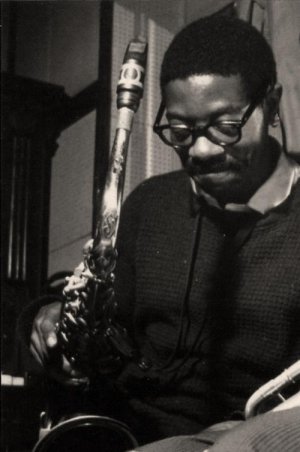
He has recorded in Japan, brought Afrocentrlc ideas to two famous
albums in the Sixties (Black Narcissus and Power to the People, both
with a hard political agenda), on the cusp of the Seventies spent six
months in the jazz-rock band Blood. Sweat and Tears (which he hated –
too repetitions, too many limos and too little music) and is now the
elder statesman of the melodic, mature and confident sound of
post-Davis bebop and ballads.
Joe Henderson has come a long way . . . but he remembers it all.
"I had no input into that Blue Note compilation because I'm
now signed to this other company,” he says, "but I take my hat
off to them. They did a beautiful job. I had a two-hour interview
flying between LA and Nice with the guy who did the liner notes and I
was surprised, as he was; just how much I could remember.
“When he was asking questions. the recording sessions seemed
like they'd happened the day before. But because they were so long
ago - the first one came from my first recording in 1963 - I can now
be objective about them."
Henderson's recall easily encompasses his first paying gig in New
York City. He'd previously studied at Kentucky State University for a
year and spent four years at Wayne State in Detroit where he played
alongside multi-instrumentalist Yusef Lateef and trumpeter Donald
Byrd.
During two years in the military he spent time in France where he
met jazz expatriates Bud Powell and Kenny Clarke. On his discharge in
'62, he settled in New York and hooked up with a bassist from
Detroit, Bernard McKinney, who showed him the ropes.
"I didn't know anything about the city but three months later
I was working my first gig and at the end the guy says, ‘Here Joe,
here’s your money.' It was $10 . . . and that went a long way in
’62. I’d gotten out of the military in August, so the gig would
have been in the Fall. There weren’t a lot of people there, but
just the fact I'd been hired for a gig in New York! I couldn’t
believe it and I’ll never forget it.”
Within months Henderson was playing alongside trumpeter Kenny
Dorham on a Blue Note recording session -- another coup, given that
label's special place in jazz of the period. His own Blue Note debut,
Page One, was recorded in mid-1963 and Henderson was on his way.
He played on 30 albums by others and recorded seven under his own
name during that exciting decade of jazz where there seemed to be few
boundaries. Vying for eartime in the jazz community of the time were
the sounds of free jazz -- spontaneous improvisation which took as
its starting point Ornette Coleman’s Free Jazz album of 1960 -- and
straight ahead hard bop. There was Third Stream with its classical
influences, the Afro-driven spiritual sounds of John Coltrane,
restrained experiments with time signature by Dave Brubeck and his
acolytes building on his Take Five album of '58 . . .
A broad freedom of expression was available in the jazz
vocabulary. And Henderson says he misses it these days.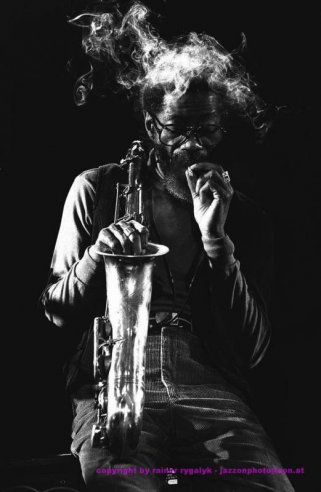
“I’ve done some free things because there’s a part of me
that is a bit of an iconoclast and was especially so at that time.
Part of the spirit then was just to reject all that stuff like bar
lines and key signatures. We didn’t want to know about it.
“So part of the thing then was just to get up on the bandstand.
I became a little self-conscious about people coming in with their
own music and parts written out for everyone to play and totally
displacing what others might want to bring. I just said, ‘Let's
play' and didn’t want to interfere by even suggesting a title for a
tune.
“We'd just start playing and see what came out of it. We'd be
able to deal with it and figure out afterwards what we did. It was
such an interesting time and I don’t understand why that spirit
didn’t have a longer life.
"People like Albert Ayler [the seminal avant-garde tenor
player who died in 1970] aren’t around any more, of course. But
Ornette still is, although he’s much more traditional and
conservative than he was . . . and I‘m surprised by that. I was
asking someone just a week ago, ‘Whatever happened to ...’ and a
whole list came out of people who were connected with that free
movement who just seem to have evaporated ir vanished.
"Today there doesn't seem to be too much interest in that
free spirit of jazz where you just play and you don’t have to have
gone to this or that university to ensure we all know similar things
so we can make music together.
“That idea of saying, 'If you play saxophone, come on up and
we’ll figure out something’ seems gone now," he concludes
ruefully.
Doubtless that spirit of spontaneity was crushed in the Eighties
by what has become known as the “neo-conservative” movement which
had as its figurehead hot trumpeter Wynton Marsalis, whose insistence
on the correct, respectful attitude to the music often took on the
appearance of a political dogma.
Having sat out the Seventies after his Blood, Sweat and Tears
encounter as a low-profile jazz player, Henderson steadily worked his
way back to the forefront in a series of trio recordings during the
neoconservative Eighties.
As one who was there for that particular jazz the first time
round, he is surprised and saddened at the attitude of these younger
musicians whose market profile he hinted at it whose music often
doesn't match the claims made for it.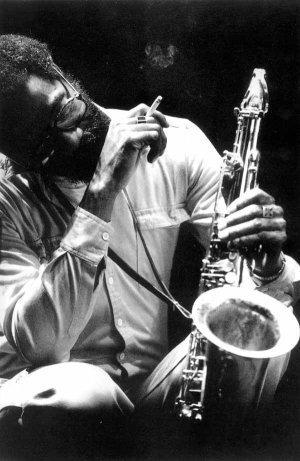
“I'm just surprised they seem so easily satisfied,” he says,
shaking his head with a bewildered smile. “They are satisfied just
to become the clones of the musicians of the previous generation.
They only want to be as good as that. In the Sixties we were
interested in pushing back those boundaries and adding something new
and coming up with ways and undiscovered avenues of interpreting and
improvising.
“We were young and excited by the possibilities - but today so
many younger musicians appear to be satisfied with just being as good
as the previous generations.
"I don't understand that spirit. I'm used to a much more
dissatisfied climate out of which comes some great melodies and works
of art oftentimes.
“The state of the art recording now is at a high level, although
some things about it haven’t really changed as far as my ear is
concerned. Sure, it’s gone from analogue to digital, so now it's
nothing for these young musicians to have their music in stores right
alongside the masters who are the mentors and influences. But how
could it be that you would put something out which isn’t quite as
good as that - but maybe just sounds better?
“I simply don’t understand that.”
If the neo-cons have been lining up to pay homage to those mentors
and influences – notably Duke Ellington (in the case of Marsalis
and his followers) and the early Miles Davis - then so, too, are many
of the more mature musicians tipping their berets towards Henderson.
Dumb leading questions by interviewers notwithstanding (“What do
you think of Joe Henderson?" directed to trumpeter Roy Hargrove.
Answer: "Well, he’s always been recognised by musicians . .
."), Henderson cops acclaim whichever way he turns.
Guitarist John Scofield - one of the finds of the Eighties who
didn't fit the neocon mould calls him “the essence of jazz” who
embodies “all the different elements that came together in his
generation: hard-bop masterfulness plus the avant-garde."
Branford Marsalis considers Henderson “one of the most
influential saxophone players of the 20th century" and young
pianist Stephen Scott, who plays on Lush Life, notes: "Joe uses
so much space when he plays and, as a piano player, you have to learn
to play in the cracks so that you won’t get in the soloist's way.
Joe starts in the cracks!"
Respect from peers has always been more important in jazz than
Grammles and critics' polls -- welcome though they may also be.
Tenor saxophonist Joe Lovano, himself a musician like Henderson
who swam against the neo-con tides of the Eighties, offers the most
telling tribute to a man whose particular path has been unique in a
music that is by definition individual and unique.
“he's always had his own voice,” says Lovano. "He's
developed his own concepts with inspirations of the people he dug but
without copying them. I hear Joe in other tenor players. I hear not
only phrases copped from Joe but lately I hear younger cats trying to
cop his sound. That's who you are as player: your sound.
“It's one thing to learn from someone, but to copy his sound is
strange. Joe’s solo development live is a real journey - and you
can't cop that! He’s on an adventure whenever he plays.”
But it’s an adventure with the attendant pitfalls of success at
this point. For a musician whose career spans the breadth of jazz
expression, he has latterly become known for his two most recent
tribute albums using the music of others.
He is scrupulous about according those musicians their due, but
the question remains: Where's Joe going with this?
"I’m thinking about another album right now,” he says
thoughtfully, "but we haven't settled on how we want to approach
it. If it’s another tribute, well, I’d have to say that formula
has worked well for me.
“They are great projects - Lush Life and Musing for Miles
couldn’t have been better, just beautiful music regardless. But if
I did another it would definitely have to be the last and I'd make a
l80-degree turn because there is such a danger in being typecast.
“And I’ve done so many different things in jazz over the
years.
“People say to me, ‘Look, that was all right - but we want to
hear your music now.’ I get that more often than anything else
these days. And when you‘ve had the success I`ve had recently, you
have to plan things out a little more. Unfortunately you can't just
go out there like a carefree spirit any more and have at it like you
used to."
He offers a broad smile and the lines around his eyes etch in
deeper.
Not like you used to?
“Yeah,” he laughs. “That's what success does for you!”
Joe Henderson's next album for Verve was in fact a tribute to Antonio Carlos Jobim (who also appeared at the Verve festival in his last live performance), and he also released his interpretation of Gershwin's Porgy and Bess. He died of heart failure due to complications from emphysema in 2001.

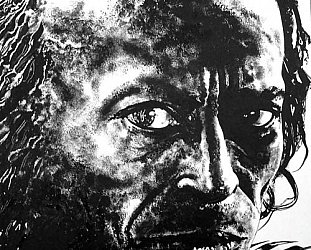
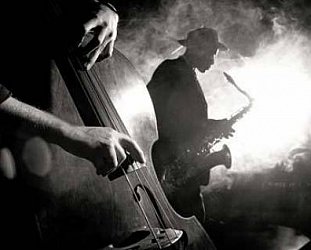
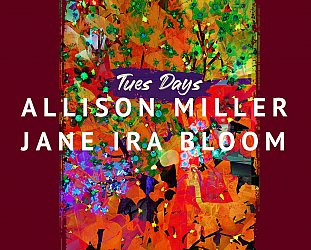

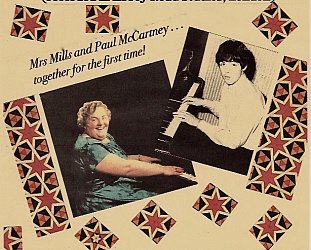
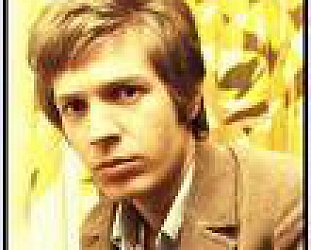
post a comment